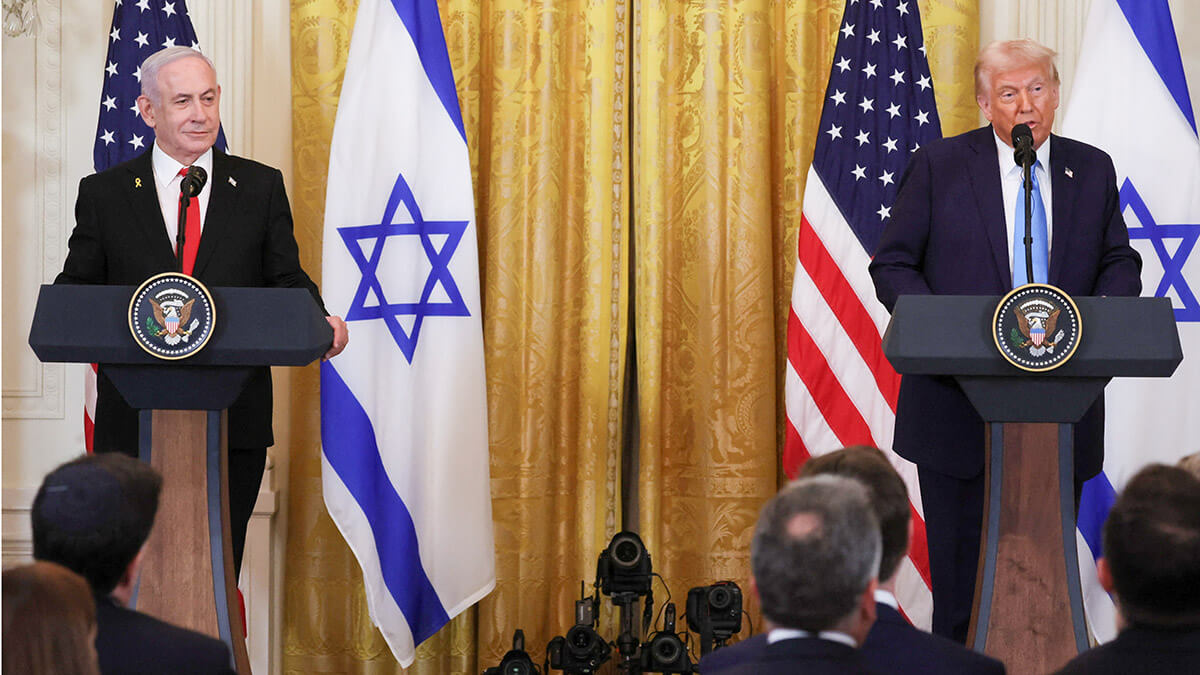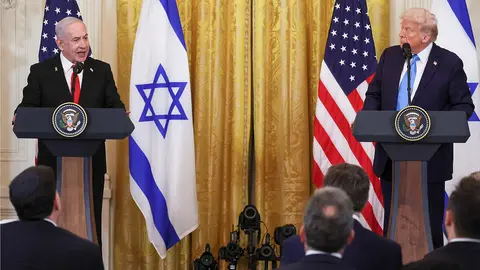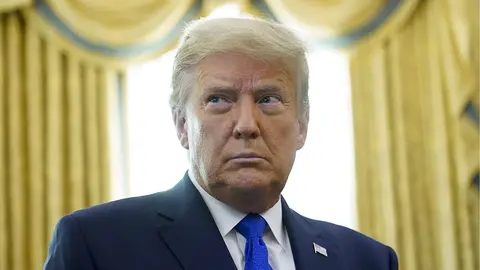Israeli Defence Minister orders plan to be drawn up to allow Palestinians to leave Gaza voluntarily

Shortly after US President Donald Trump presented his proposal for the Gaza Strip - which is based on the relocation of Gazans to neighbouring countries - Israeli Defence Minister Israel Katz ordered the army to start preparing a plan to allow the ‘voluntary’ exit of Palestinians from the enclave.
‘I have instructed the Israel Defense Forces (IDF) to prepare a plan to allow the voluntary departure of Gaza residents,’ said Katz, who explained that the scheme would include options for departure by land, sea and air, for those who wish to leave the enclave and move to any country that will accept them.
The Israeli Defence Minister welcomed Trump's plan to relocate the inhabitants of Gaza, presented during the visit to Washington of the Prime Minister, Benjamin Netanyahu, the first foreign leader Trump has received since his inauguration.
Katz has described the proposal as ‘courageous’, as it ‘could allow a large part of the population of Gaza to leave for various parts of the world’. In this sense, Katz emphasised that Hamas used the residents of Gaza as human shields, building ‘a terrorist infrastructure at the heart of the population’. ‘Now he holds them hostage, extorting money from them through the use of humanitarian aid and preventing them from leaving Gaza,’ he added.
Likewise, Katz emphasised that Trump's plan could promote ‘redevelopment plans in a demilitarised Gaza that does not pose a threat in the post-Hamas era, which will take many years’.
I have instructed the IDF to prepare a plan that will allow any resident of Gaza who wishes to leave to do so, to any country willing to receive them.
— ישראל כ”ץ Israel Katz (@Israel_katz) February 6, 2025
Hamas has used the residents of Gaza as human shields, built its terror infrastructure in the heart of the civilian population,…
‘The residents of Gaza should be allowed the freedom to leave and emigrate, as is the custom throughout the world,’ Katz added, asserting that countries such as Spain, Ireland, Norway and others, ’which have launched false accusations and blood libels against Israel for its actions in Gaza, are legally obliged to allow any Gaza resident to enter their territory.’
For his part, Netanyahu has also backed the initiative, describing it as ‘the first good idea’ to resolve the conflict during an interview with Fox News, where he also suggested that the Palestinians could leave and return later. ‘They can leave, then they can return, they can relocate and return, but first Gaza must be rebuilt,’ he emphasised.
According to United Nations figures, the war between Israel and Hamas has damaged or destroyed around 60% of buildings, including schools and hospitals, and approximately 92% of homes.

However, Trump's plans have been met with unanimous rejection from Arab world leaders, who are firmly opposed to the Palestinians being displaced from Gaza. The President of the Palestinian Authority, Mahmoud Abbas, rejected the proposal, calling it a ‘grave violation’ of international law, stressing that the rights of the Palestinians ‘are not negotiable’.
Similarly, human rights organisations such as Human Rights Watch have condemned the proposal, claiming that this plan amounted to an ‘attempt to intensify the ethnic cleansing in Gaza’. The UN Secretary-General, António Guterres, also reiterated the right of the Palestinians to remain in their territory.

In addition to relocating Palestinians from Gaza to neighbouring countries such as Egypt or Jordan, the US president also said that his administration would seek to have the United States take charge of Gaza.
However, the following day, the US authorities moderated their position. Secretary of State Marco Rubio said that any relocation of Gaza's inhabitants would be temporary, while the White House denied plans to deploy troops in the Palestinian enclave.
Shortly after Trump's statements, Egyptian officials told the Associated Press that Cairo has made clear to both the Trump administration and Israel its firm opposition to any such proposal, warning that the peace agreement with Israel, signed in 1979, ‘is in danger’.










